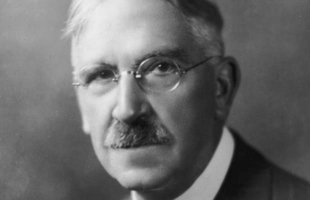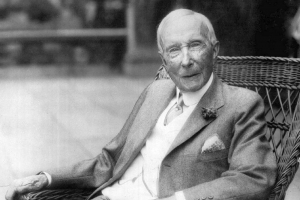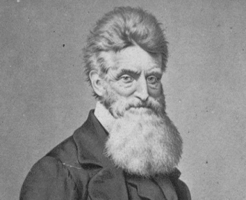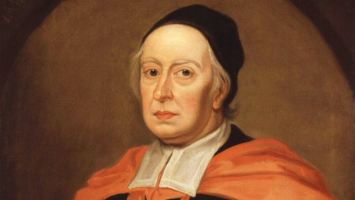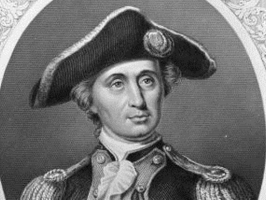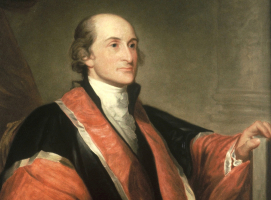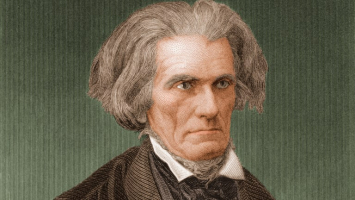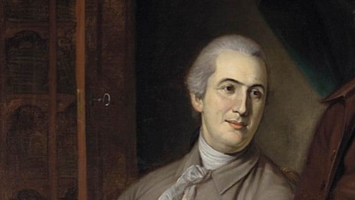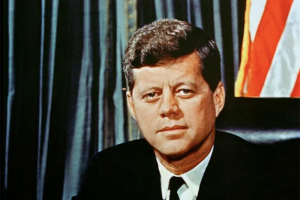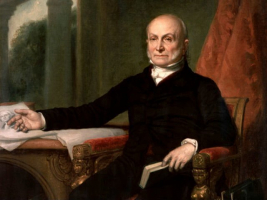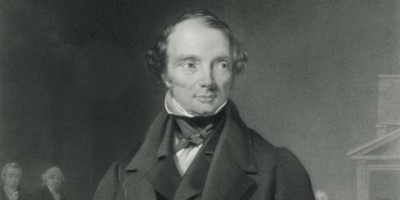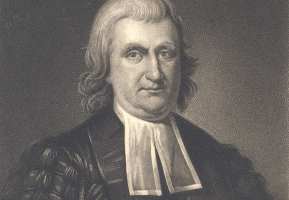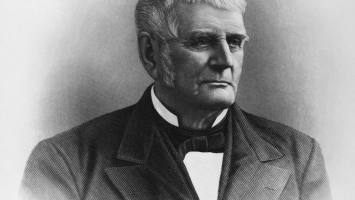Top 7 Interesting Facts about John Kerry
John Forbes Kerry (born December 11, 1943) is an American lawyer, politician, and diplomat who serves as the United States' first special presidential envoy ... read more...for climate change. He was the 68th United States Secretary of State under Barack Obama, and a member of the Forbes family and the Democratic Party. Kerry rose to prominence as a decorated navy commander and Vietnam veteran who became an anti-war campaigner. He went on to become a county prosecutor, Lieutenant Governor of Massachusetts, and United States Senator representing Massachusetts from 1985 to 2013. In the 2004 presidential election, he was the Democratic nominee, but he lost to incumbent President George W. Bush. Here are the 7 interesting facts about John Kerry.
-
One of the most interesting facts about John Kerry is that he received many military honors. Kerry was in command of a small boat working near a peninsula north of Cam Ranh Bay with a Swift boat during the night of December 2 and early morning of December 3, 1968 (PCF-60). Kerry and his two crewmen, Patrick Runyon and William Zaladonis were ambushed by a gang of Vietnamese members unloading sampans at a river crossing that night. Kerry got a shrapnel wound in the left arm above the elbow during this battle. Kerry won his first Purple Heart Medal for this injury.
Kerry won his second Purple Heart on February 20, 1969, for a wound incurred in battle on the Bồ Đề River. Kerry's boat was hit by a B-40 rocket as the Swift boats approached the Cửa Lớn River, and a piece of shrapnel hit Kerry's left leg, injuring him. After that, the enemy fire stopped, and his boat arrived safely in the Gulf of Thailand. Kerry still has shrapnel implanted in his left thigh because the physicians who initially treated him chose to remove the damaged tissue and cover the wound with sutures rather than making a large opening to remove the shrapnel.
The events that earned Kerry his Silver Star Medal occurred eight days later, on February 28, 1969. During a military operation, Kerry was in tactical charge of his Swift boat and two other Swift boats. As stated in the story The Death Of PCF 43, their task on the Duong Keo River entailed bringing an underwater demolition crew and dozens of South Vietnamese Marines to destroy enemy sampans, structures, and bunkers. Lieutenant Commander George Elliott, Kerry's commanding officer, told Douglas Brinkley in 2003 that he didn't know whether to court-martial Kerry for beaching the boat against instructions or award him a medal for saving the crew. Elliott nominated Kerry for the Silver Star, and Zumwalt traveled into An Thoi to personally award medals to Kerry and the remainder of the mission's sailors.
Kerry was in command of one of five Swift boats returning to their base on the Bái Háp River on March 13, 1969, after performing an Operation Sealords mission to transport South Vietnamese troops from the garrison at Cái Nước and MIKE Force advisors for a raid on a Vietcong camp located on the Rach Dong Cung canal. James Rassmann, a Green Beret advisor aboard Kerry's PCF-94, was thrown overboard when a mine or rocket exploded near the boat, according to witnesses and paperwork. Kerry's arm was wounded when he was slammed into a bulkhead during the explosion, according to event paperwork. PCF 94 returned to the site, and Kerry rescued Rassmann, who was under fire from snipers in the water. For his conduct during this incident, Kerry was awarded the Bronze Star Medal with Combat "V" for heroic achievement, as well as his third Purple Heart.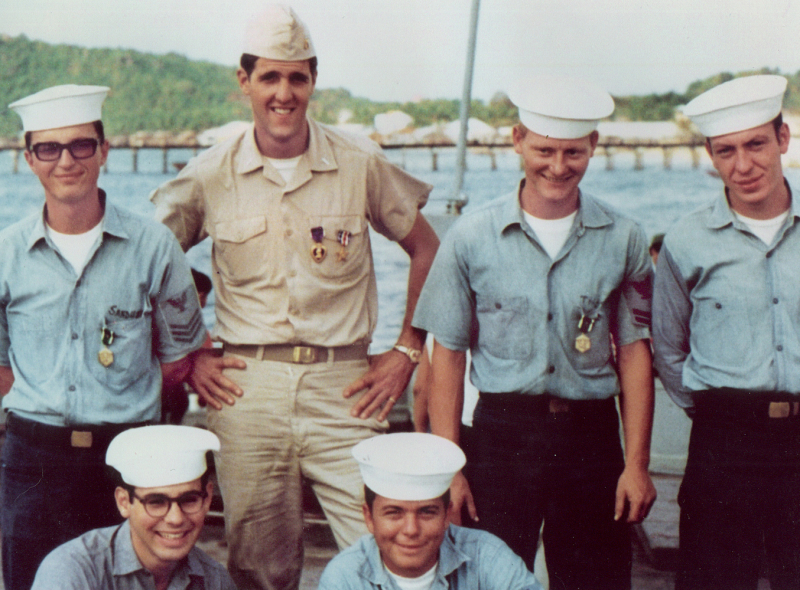
nbcnews.com 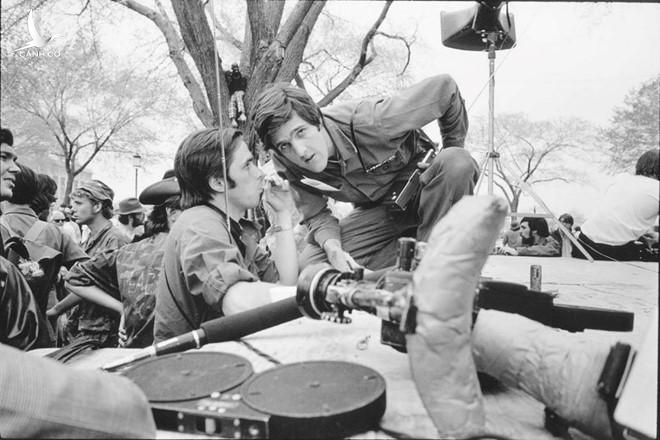
canhco.net -
It is a fact that John Kerry participated in the war, but he is anti-war. Kerry returned to the United States and settled in Waltham, Massachusetts, where he became a member of the Vietnam Veterans Against the War (VVAW). VVAW, which numbered over 20,000 people at the time, was considered by some (including President Richard Nixon's administration) to be an effective if contentious, component of the antiwar movement. Kerry was a participant in VVAW's "Winter Soldier Inquiry" into US atrocities in Vietnam, and he appears in the film of the same name, which depicts the investigation.
Kerry testified before a U.S. Senate committee hearing on war-ending solutions on April 22, 1971. The day after his speech, Kerry joined hundreds of other veterans in a rally in which he and other Vietnam War veterans threw their medals and service ribbons over a fence built at the front steps of the United States Capitol building to demonstrate their opposition to the war. Marine Jack Smith issued a statement explaining why the veterans were handing back their military honors to the government. Almost 1,000 enraged veterans threw their medals, ribbons, caps, jackets, and military papers over the fence for more than two hours. Each veteran provided his or her name, hometown, service branch, and a statement. Kerry tossed his own honors and awards, as well as those handed to him by other veterans.
Kerry was arrested on May 30, 1971, while participating in a VVAW march to memorialize American POWs detained by North Vietnam. The march was intended to be a multi-day affair from Concord to Boston, and participants attempted to camp on the town green in Lexington. Local and state police detained 441 demonstrators, including Kerry, for trespassing around 2:30 a.m. All were given the Miranda Warning before being transported on school buses to the Lexington Public Works Garage for the night. Kerry and the other demonstrators were later released after paying a $5 fine. The large arrests sparked a community response, resulting in favorable news for the VVAW.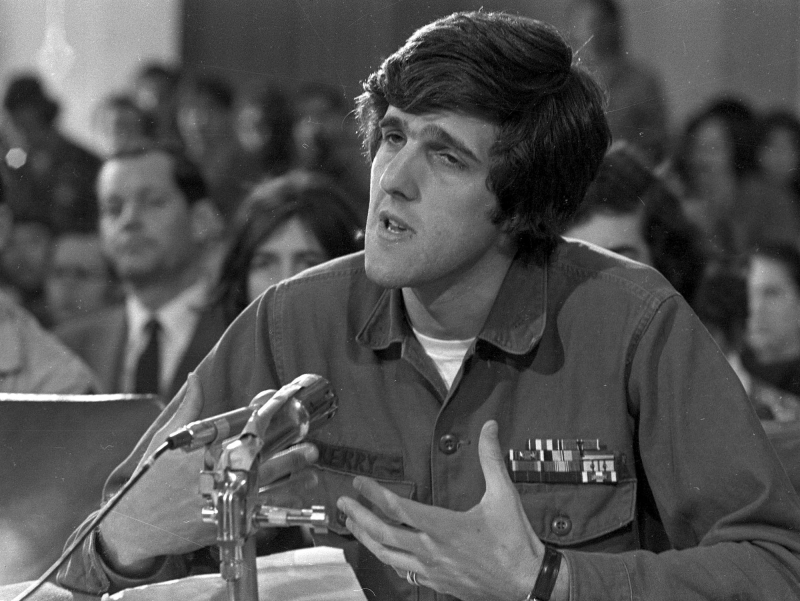
mprnews.org 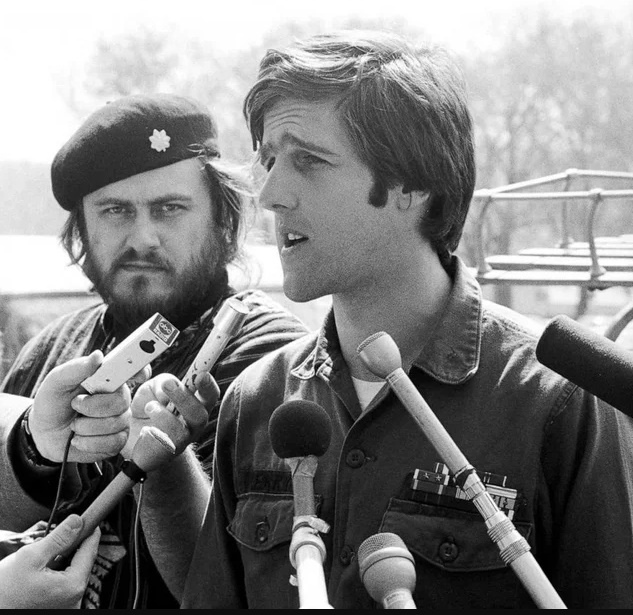
reddit.com -
One of the most interesting facts about John Kerry is that he studied at Boston College Law School. He and his wife purchased a home in the Belvidere neighborhood of Lowell, Massachusetts. He worked as a fundraiser for the worldwide humanitarian group Cooperative for Assistance and Relief Everywhere (CARE). He enrolled at Boston College Law School in September 1973. Kerry worked as a talk radio broadcaster on WBZ while studying and was chosen as executive director of Mass Action, a Massachusetts advocacy organization, in July 1974.
Kerry earned his Juris Doctor (J.D.) in 1976 from Boston College. He had worked as a student prosecutor in the office of Middlesex County District Attorney John J. Droney while in law school. After passing the bar exam and being admitted to the Massachusetts bar in 1976, he began working as a full-time prosecutor in that office and relocated to Chestnut Hill, Massachusetts.
Droney promoted him to First Assistant District Attorney in January 1977, thereby making Kerry his campaign and media spokesperson due to Droney's amyotrophic lateral sclerosis (ALS, or Lou Gehrig's Disease). Kerry tried cases as a First Assistant, achieving convictions in high-profile rape and murder cases. He also helped to run the office, establishing the formation of special white-collar and organized crime divisions, developing programs to help rape and other crime victims and witnesses, and managing trial calendars to reflect case priorities. In this capacity, Kerry announced an investigation into possible criminal charges against then-Senator Edward Brooke for misstatements in his first divorce hearing in 1978. The investigation concluded with no charges being filed because investigators and prosecutors found that Brooke's misstatements were relevant to the case but not significant enough to have changed the outcome.
Droney's health was failing, and Kerry had agreed to run for his seat in the 1978 election if Droney dropped out. However, Droney was re-elected, and his health improved, allowing him to re-assume many of the responsibilities he had delegated to Kerry. As a result, Kerry opted to resign, leaving in 1979 with assistant DA Roanne Sragow to start their own law company. Kerry also served as a WCVB-TV analyst and co-founded Kilvert & Forbes Ltd., a bakery, with businessman and former Kennedy advisor K. Dun Gifford.
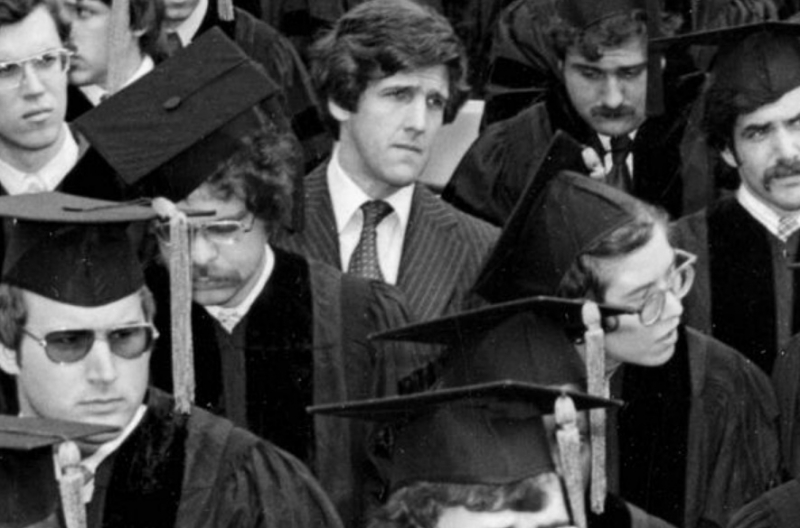
twitter.com 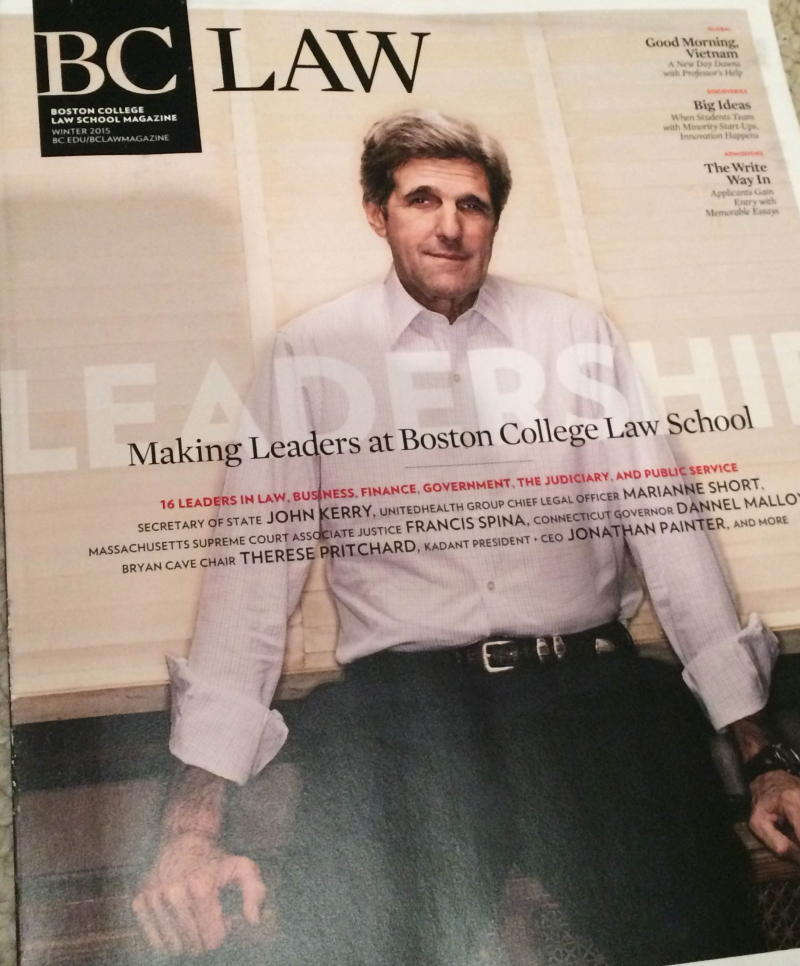
bclawimpact.org -
It is a fact that he was Lieutenant Governor of Massachusetts. Lieutenant Governor Thomas P. O'Neill III declined to compete for a third term in the 1982 Massachusetts gubernatorial election, instead opting to run for Governor of Massachusetts. Kerry launched his candidacy, joining Massachusetts Secretary of Environmental Affairs Evelyn Murphy, State Senator Samuel Rotondi, State Representative Lou Nickinello, and Lois Pines in the primary election.
Kerry received 325,890 votes (29 percent) to Murphy's 286,378 votes (25.48 percent), Rotondi's 228,086 votes (20.29 percent), Nickinello's 150,829 votes (13.42 percent), and Pines' 132,734 votes (11.81 percent). Former Governor Michael Dukakis defeated O'Neill and incumbent Governor Edward J. King in the concurrent gubernatorial primary. In the general election, the Dukakis-Kerry ticket defeated the Republican ticket of John W. Sears and Leon Lombardi by 1,219,109 votes (61.92 percent) to 749,679 votes (38.08 percent).
Kerry presided over meetings of the Massachusetts Governor's Council while Lieutenant Governor. Dukakis also assigned Kerry to serve as the state's liaison to the federal government of the United States. He was also involved in environmental concerns, such as the fight against acid rain.
The governor of the Commonwealth of Massachusetts serves as the state's chief executive officer. The governor presides over the state cabinet and commands the commonwealth's military forces. Massachusetts has a republican government, which is similar to a presidential system. The governor serves as the head of government, but his position is distinct from that of the legislative branch. The governor has extensive political responsibilities, including ceremonial and political tasks. The governor also has veto power and signs measures into law. The governor is a member of the Massachusetts Governor's Body, an eight-person popularly elected council that advises and consents on certain legal matters and appointments.
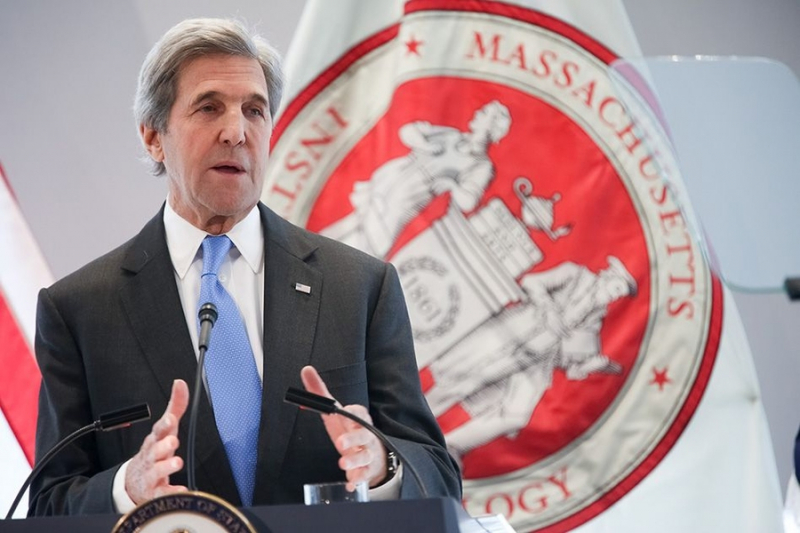
news.mit.edu 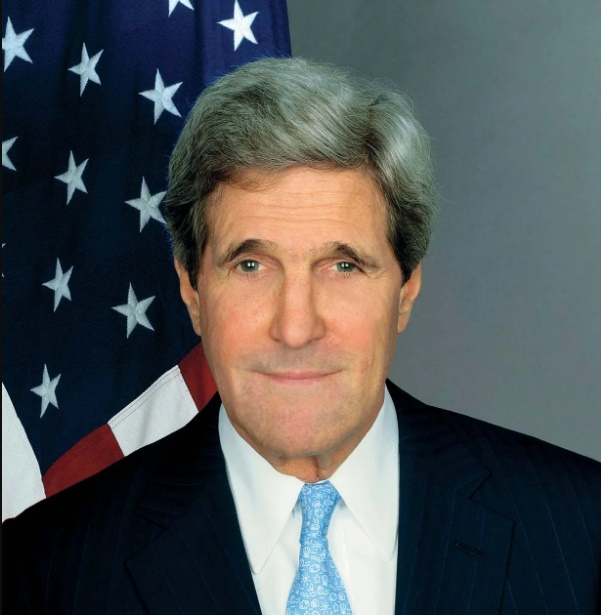
britannica.com -
He ran for President in 2004 but was defeated. John Kerry defeated multiple Democratic challengers in the 2004 Democratic presidential primaries, including Sen. John Edwards (D-North Carolina), former Vermont Governor Howard Dean, and retired Army General Wesley Clark. His victory in the Iowa caucuses is widely seen as the tipping point that resurrected Kerry's sinking campaign in New Hampshire and, on February 3, 2004, in primary states such as Arizona, South Carolina, and New Mexico. Kerry then won landslide victories in Nevada and Wisconsin. Kerry, therefore, earned the Democratic nomination to run against incumbent George W. Bush for President of the United States. On July 6, 2004, he announced his choice of running mate John Edwards. Democratic strategist Bob Shrum, Kerry's 2004 campaign consultant, claimed in a Time magazine story that after the election, Kerry said he wished he hadn't chosen Edwards and that the two have since stopped speaking.
Kerry regularly lambasted President George W. Bush for beginning the Iraq War during his 2004 presidential campaign. While Kerry initially supported President Bush's use of force against Saddam Hussein, he voted against an $87 billion supplemental funding package to fund the subsequent conflict. His March 16, 2004, statement, "I actually did vote for the $87 billion before I voted against it," aided the Bush campaign in portraying him as a flip-flopper and has been considered a factor in Kerry's defeat.
Kerry surrendered the election on November 3, 2004. Kerry received 59.03 million votes, or 48.3 percent of the popular vote, whereas Bush received 62.04 million votes or 50.7 percent of the vote. Kerry won states by a margin of 252 electoral votes. Kerry received one electoral vote for his running partner, Edwards, giving him 251 electoral votes to Bush's 286.
newyorker.com 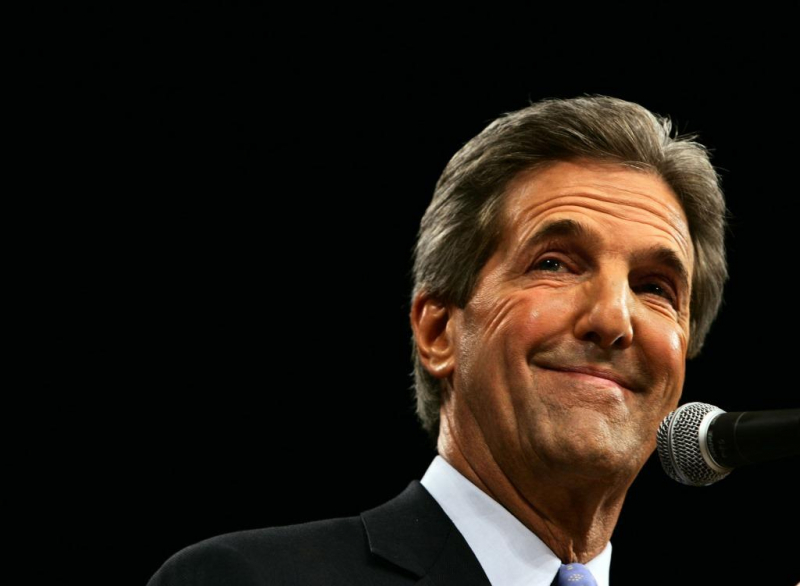
prospect.org -
It is an interesting fact that he served as Secretary of State from 2013 to 2017. On December 15, 2012, several news outlets reported that President Barack Obama would nominate Kerry to succeed Hillary Clinton as Secretary of State, after Susan Rice withdrew her name from consideration, citing a politicized confirmation process in response to criticism of her response to the 2012 Benghazi attack. On December 21, Obama proposed the nomination, which was met with enthusiastic feedback. On January 24, 2013, he was confirmed by the Senate Foreign Relations Committee, the same panel before which he initially testified in 1971. On January 29, 2013, the committee overwhelmingly approved him, and the full Senate confirmed him on the same day by a vote of 94-3. Kerry announced his resignation from the Senate in a letter to Massachusetts Governor Deval Patrick, effective February 1.
During his tenure as Secretary of State, Kerry spoke in French on multiple occasions in an official capacity. Following six months of intensive diplomacy in the Middle East, Kerry was able to persuade Israeli and Palestinian negotiators to begin the 2013-14 Israeli-Palestinian peace talks. According to senior US sources, the two parties were able to meet without American mediators on July 30, 2013, at the State Department following a dinner held by Kerry the night before.
He met with Iranian Foreign Minister Mohammad Javad Zarif on September 27, 2013, during the P5+1 and Iran summit, which resulted in the JCPOA nuclear agreement. It was the highest-level direct interaction between the US and Iran in the previous six years, and he became the first US Secretary of State to meet with his Iranian counterpart since the 1979 Iranian Revolution.
During the 2014 Israel-Gaza war, Kerry affirmed support for Israel's right to self-defense. Kerry stated that the US supported the Saudi-led intervention in Yemen because Saudi Arabia, an ally, was threatened quite directly by the Houthis' seizure of neighboring Yemen, but that the US would not automatically support Saudi Arabia's proxy conflicts against Iran.
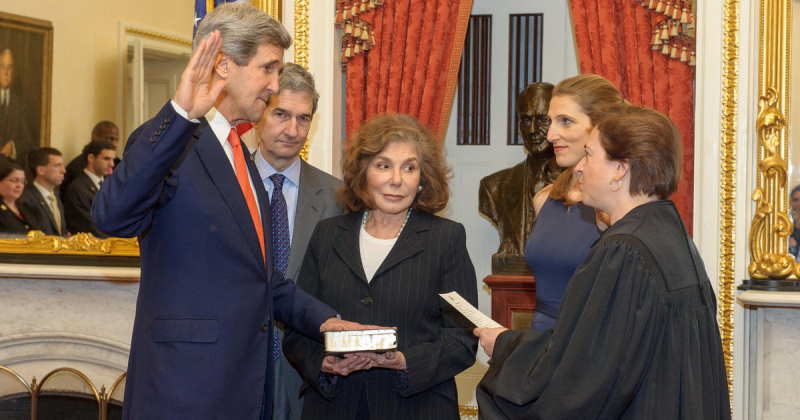
Kerry was sworn in as Secretary of State on February 1, 2013 -Photo: cbsnews.com 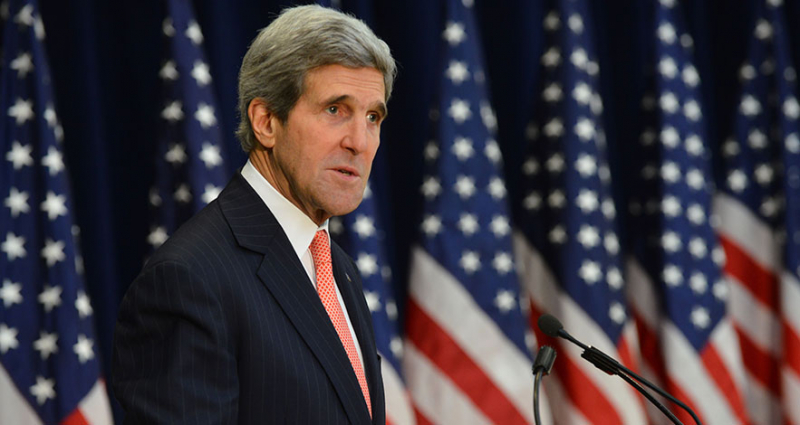
Photo: 2009-2017.state.gov -
One of the most interesting facts about John Kerry is that he had a huge net worth. Teresa Heinz Kerry's net worth was assessed to be $750 million in 2004 by the Forbes 400 survey. According to a study published in the Los Angeles Times, estimates have ranged from roughly $165 million to as much as $3.2 billion. Regardless of which amount is right, Kerry was the wealthiest United States Senator while in office. Independent of Heinz, Kerry is a wealthy man in his own right, having received at least four trusts inherited from Forbes family members, including his mother, Rosemary Forbes Kerry, who died in 2002. Forbes magazine estimated that if elected and Heinz family assets were included, Kerry would have been the third-richest US president in history, when adjusted for inflation. This calculation was based on Heinz and Kerry's combined holdings, however, the couple signed a prenuptial agreement that separates their assets. Kerry's personal assets in 2011 ranged from $230,000,000 to $320,000,000, including the assets of his spouse and any dependent children, according to his financial disclosure form. This contained slightly more than $3 million in H. J. Heinz Company assets, which surged in value by more than $600,000 in 2013 when Berkshire Hathaway announced their desire to purchase the company.
Kerry purchased an 18-acre property in Chilmark, Massachusetts, on the northwest corner of Martha's Vineyard overlooking Vineyard Sound in April 2017. According to property records, the property in Seven Gates Farm cost $11.75 million for a seven-bedroom mansion.
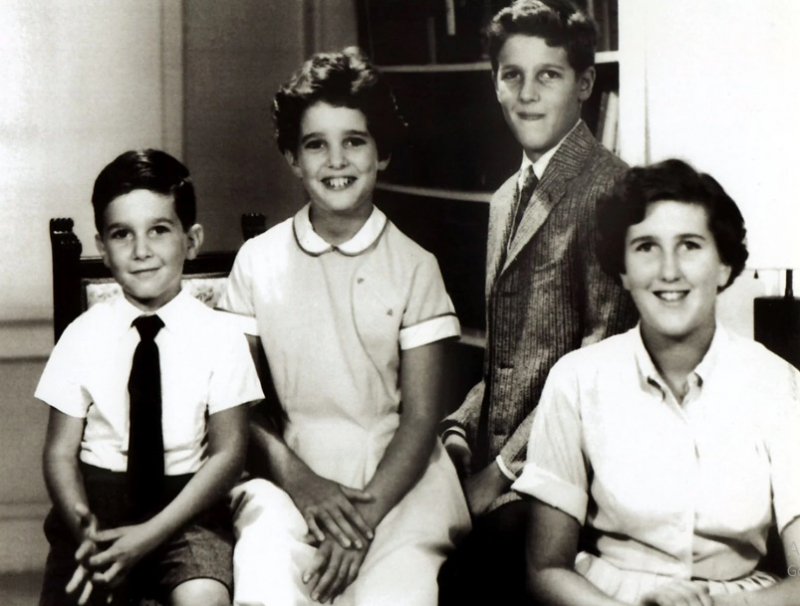
John Kerry and his siblings -Photo: nbcnews.com 
vineyardgazette.com











